According to the resolution adjusting and supplementing the 2024 provincial budget public investment plan approved by the People's Council on November 5, Quang Ninh province allocated 157.8 billion VND from increased revenue in 2023 and excess revenue bonus in 2022 to supplement investment expenditure for 9 projects in the education and training sector.
Specifically, this additional capital will be used to support localities in investing in construction and upgrading facilities for the education and training sector. Priority will be given to mountainous, highland, island and border areas of the province; localities with difficulties, weak balance and projects that are eligible to use and effectively disburse capital in 2024.
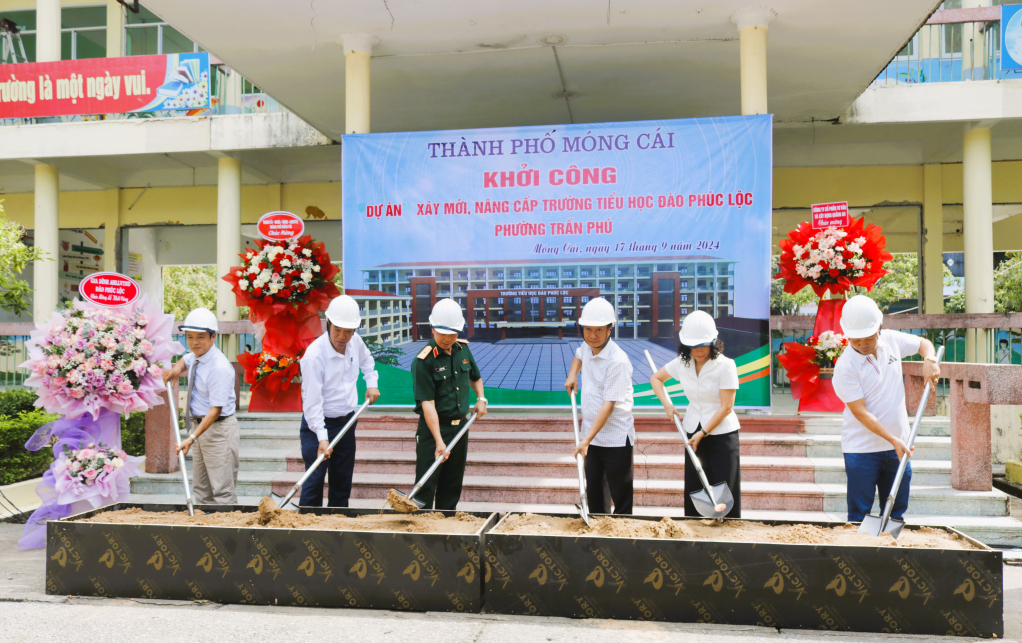
Dao Phuc Loc Primary School started construction and upgrading on September 17, 2024. Photo: Mong Cai City Cultural and Information Center.
The support is carried out on the principle that the provincial budget supports the construction and equipment costs of the main items, with the ability to effectively disburse according to the capital target in 2024.
Accordingly, Quang Ninh allocates increased revenue in 2023 (VND 29.7 billion) to the Tien Yen District Middle and High School project; allocates VND 128.1 billion from the central government's excess revenue bonus in 2022 to educational projects in the province, including: Dam Ha Town Middle School, Dam Ha District; Quang Minh Middle School, Dam Ha District; Quan Lan Kindergarten, Van Don District; Ha Long Middle School, Van Don District; Dao Phuc Loc Primary School, Mong Cai City; Ninh Duong Middle School, Mong Cai City; Hoang Van Thu High School, Uong Bi City; Phuong Nam Kindergarten, Uong Bi City. The approved resolution will increase investment resources for education, especially supplementing facilities and equipment, investing in repairing, upgrading, and building new school buildings.
In fact, investment in education and training development, especially in mountainous, island and border areas, has always been identified by Quang Ninh as one of the priorities in its socio-economic development strategy.
With the viewpoint that "Education and Training is the top national policy, the cause of Party committees, authorities and the entire people, investment in education is development investment, given priority in the province's socio-economic development programs and plans", in recent years, Quang Ninh has issued many policies to develop education and training. The province's state budget investment in education always reaches over 20% of the total annual budget expenditure. In the period of 2021-2024, the whole province has invested in education with a total budget of nearly 1,434 billion VND.
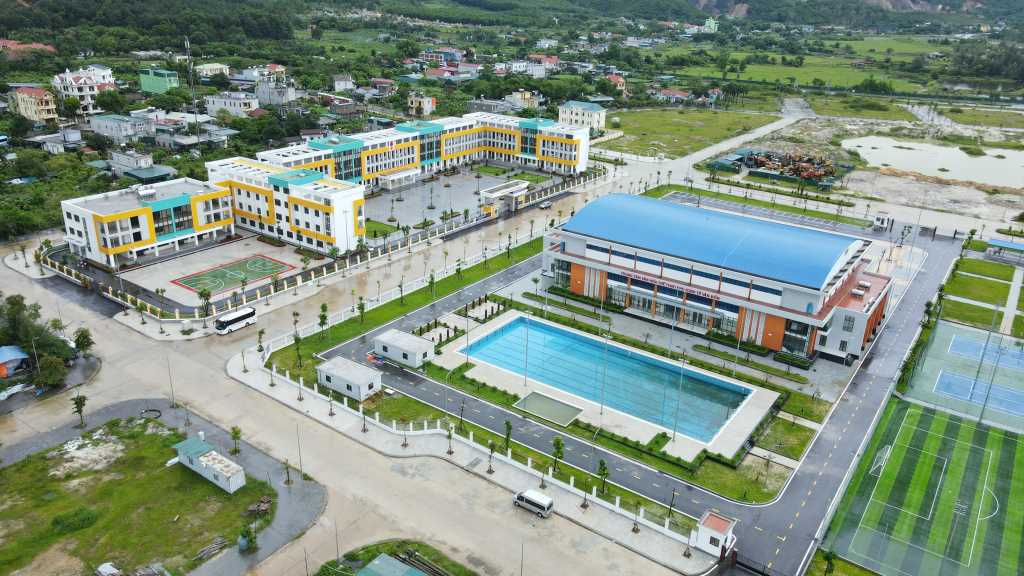
Quang Ninh always devotes large resources to investing in education. In the photo is Ha Long 1 Primary School (Ha Long Commune, Van Don District) invested in according to the high-quality school model. Photo: DVCC.
Thanks to that, the whole Quang Ninh province has built a system of schools from urban areas to remote and isolated areas, in the direction of solidification and standardization. Most schools are interested in arranging land funds in central locations, convenient for students to go to school.
Up to now, Quang Ninh province has 637 educational institutions, including: 222 kindergartens, 156 primary schools, 187 secondary schools, 58 high schools, 13 district-level vocational education and continuing education centers and 1 provincial vocational guidance and continuing education center. The rate of national standard schools is high with 560/617 schools, accounting for 90.8%. It is expected that by the end of 2024, the rate of national standard schools in the province will reach over 91%.
These figures are evidence of Quang Ninh province's special attention to education. Thanks to that, the province's education quality has improved significantly.
In the 2024 high school graduation exam, Quang Ninh excelled and rose to 25th place out of 63 provinces and cities nationwide, up 11 places compared to 2023 and up 27 places compared to 2019. Last school year, Quang Ninh had 15 teachers recognized as "Excellent Teachers" - the highest ever.
In addition, the province continues to maintain the work of universalizing education and eliminating illiteracy, and the quality is constantly improved. 100% of preschool children in the province are studying 2 sessions/day. The quality of universalizing preschool education for 5-year-old children continues to be maintained. The province has also achieved the standard of universalizing primary education level 3 (the highest level); achieved the standard of universalizing secondary education level 2; achieved the standard of eliminating illiteracy level 2 (the highest level).
Along with that, Quang Ninh also issued many mechanisms and policies, allocating resources and funding for education, creating conditions for all students, preschool children in all regions of the province, especially mountainous and island areas, to enjoy the fruits of development and study in the best environment.
Previously, at the 21st session held on September 23, the People's Council of Quang Ninh province agreed to allocate 167.5 billion VND from the provincial budget to support tuition fees for preschool children, high school students, and continuing education students studying at educational institutions in Quang Ninh province in the 2024-2025 school year.
Source: https://danviet.vn/quang-ninh-tiep-tuc-dau-tu-lon-cho-giao-duc-2024110521444122.htm


![[Photo] President Luong Cuong presents the decision to appoint Deputy Head of the Office of the President](https://vphoto.vietnam.vn/thumb/1200x675/vietnam/resource/IMAGE/2025/5/8/501f8ee192f3476ab9f7579c57b423ad)
![[Photo] General Secretary concludes visit to Azerbaijan, departs for visit to Russian Federation](https://vphoto.vietnam.vn/thumb/1200x675/vietnam/resource/IMAGE/2025/5/8/7a135ad280314b66917ad278ce0e26fa)

![[Photo] Prime Minister Pham Minh Chinh meets with the Policy Advisory Council on Private Economic Development](https://vphoto.vietnam.vn/thumb/1200x675/vietnam/resource/IMAGE/2025/5/8/387da60b85cc489ab2aed8442fc3b14a)
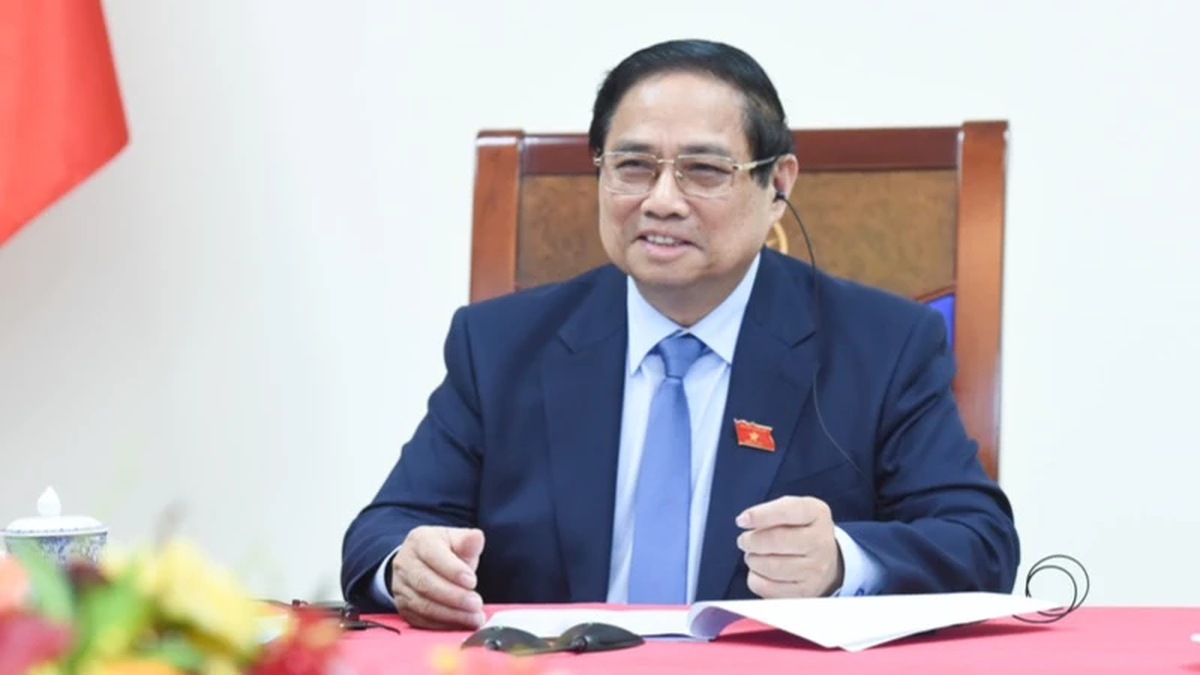
![[Photo] National Assembly Chairman Tran Thanh Man chairs the meeting of the Subcommittee on Documents of the First National Assembly Party Congress](https://vphoto.vietnam.vn/thumb/1200x675/vietnam/resource/IMAGE/2025/5/8/72b19a73d94a4affab411fd8c87f4f8d)





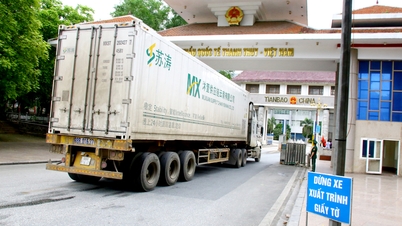

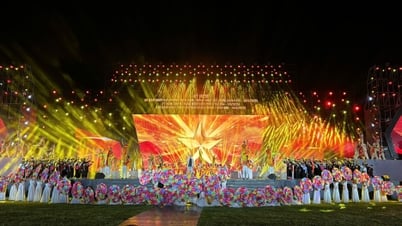


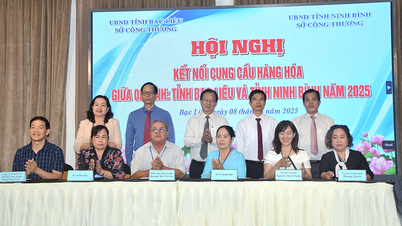
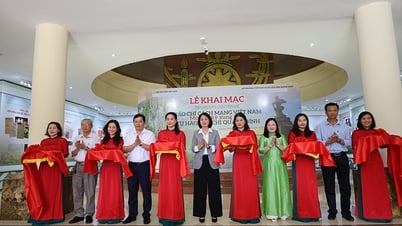
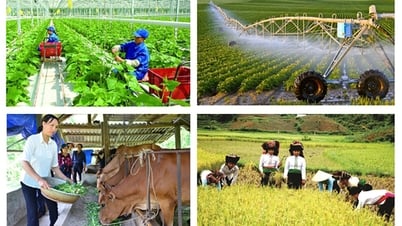

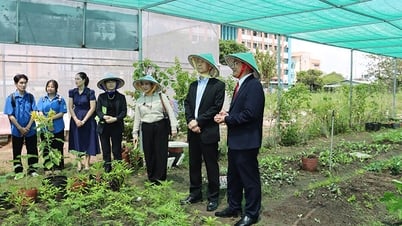





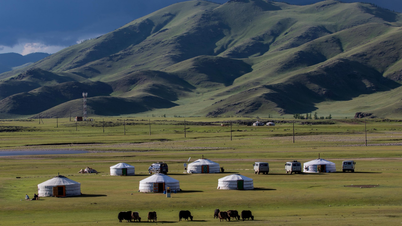

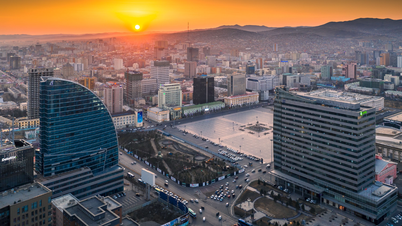




































![[Photo] Prime Minister Pham Minh Chinh talks on the phone with Singaporean Prime Minister Lawrence Wong](https://vphoto.vietnam.vn/thumb/402x226/vietnam/resource/IMAGE/2025/5/8/e2eab082d9bc4fc4a360b28fa0ab94de)















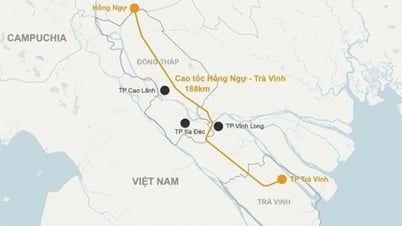
















Comment (0)